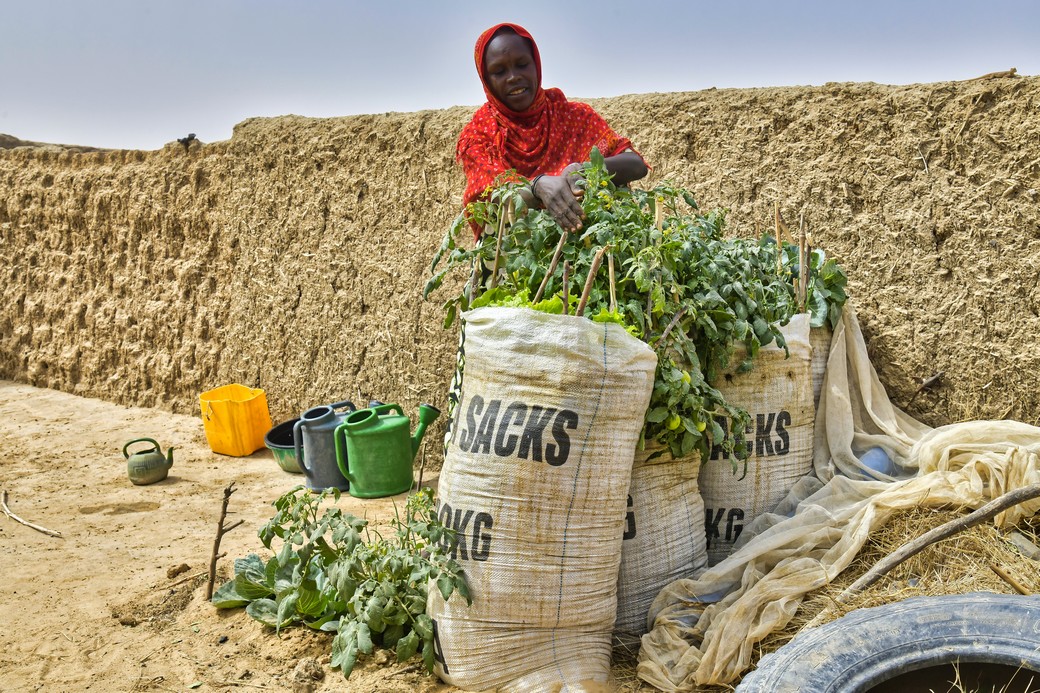A small spot in the center of the world: this is what Niger look likes at first glance.
In reality it is one of the largest countries of the African continent, divided between the Sahara desert and the Sahel, a strip of land of sub-Saharan Africa that nowadays is particularly affected by the dramatic effects of climate change.
For years Niger has suffered from persistent political instability, terrorism and armed conflicts problems, as well as from severe levels of hunger and malnutrition, especially of children.
It is the tail light of the 189 countries of the Human Development Index (GHI 2019).
But poverty and hunger does not stop the generosity of this land, which in recent years has welcomed refugees from Burkina Faso, Mali, Nigeria and Chad, where armed conflicts and the terrorism of Boko Haram have forced people to find shelter in the neighbouring countries. As the host community, Niger is laboriously supporting refugees, without forgetting the needs of the Nigerians, who are already highly vulnerable also due to climate change.
Among the reception areas, the Diffa region is the area that is most lacking means, especially in the agricultural field. The lack of technical skills and adequate tools are the main causes of food insecurity and malnutrition, which kill every year, mainly children.
Furthermore, since 2015 the region has been the victim of the violent raids of Boko Haram. This makes working and living in safety even more difficult and unstable.
In this difficult context, Cesvi and Welthungerhilfe (Alliance2015 partners in cooperation) have started a support project for the families of the municipalities of Diffa and Gueskérou. Thanks to the support of the Italian Agency for Development Cooperation (AICS), over 3,500 families (almost 25,000 people) have acquired new skills to improve agricultural production (quality and quantity), using optimization techniques for crop planning to mitigate the dramatic effects of climate change and to meet the needs of families with lower financial resources, including those of refugees.
The jardins en sac (soilless cultivation that ensures the permanent production of vegetables) were created involving the population of 9 villages, including 1,000 families without access to land (generally refugees and internally displaced people), and providing supplies and tools (bags, seeds, equipment) for the long-term management of new gardens.
Atcha Malam Fantami, 30 year-old Nigerian, is one of the women involved in the jardins en sac project. She escaped from her country due to the continuous attacks of Boko Haram.
“I come from Nigeria, where I lived with my husband and our 6 little children. We now live in the Gueskerou district. I am an artisan, I make mats. My husband, on the other hand, is a farmer, but in the beginning it was impossible to access the land here in Niger. ”
“Thanks to the project we accessed the micro credit program to grow vegetables even in the absence of land, the jardins en sac. Now we are more serene, our children eat every day and we can benefit from seasonal food vouchers”.
Thanks to the food voucher system, it is possible to guarantee an adequate and varied diet to each family during the period that goes from June to September, when the agricultural production is very limited.
Atcha Malam Fantami also participates in the program for the recovery of degraded land (Bio-Reclamation of Degraded Lands), to reclaim strips of land, now considered unproductive. Together with 200 other women, she works to increase her family’s income and improve the quality of food.
The young mother now looks at the future with hope: “Niger is my new home, but I pray in my heart that peace will return, that my family will find serenity, and that Nigeria will overcome all pain”.
